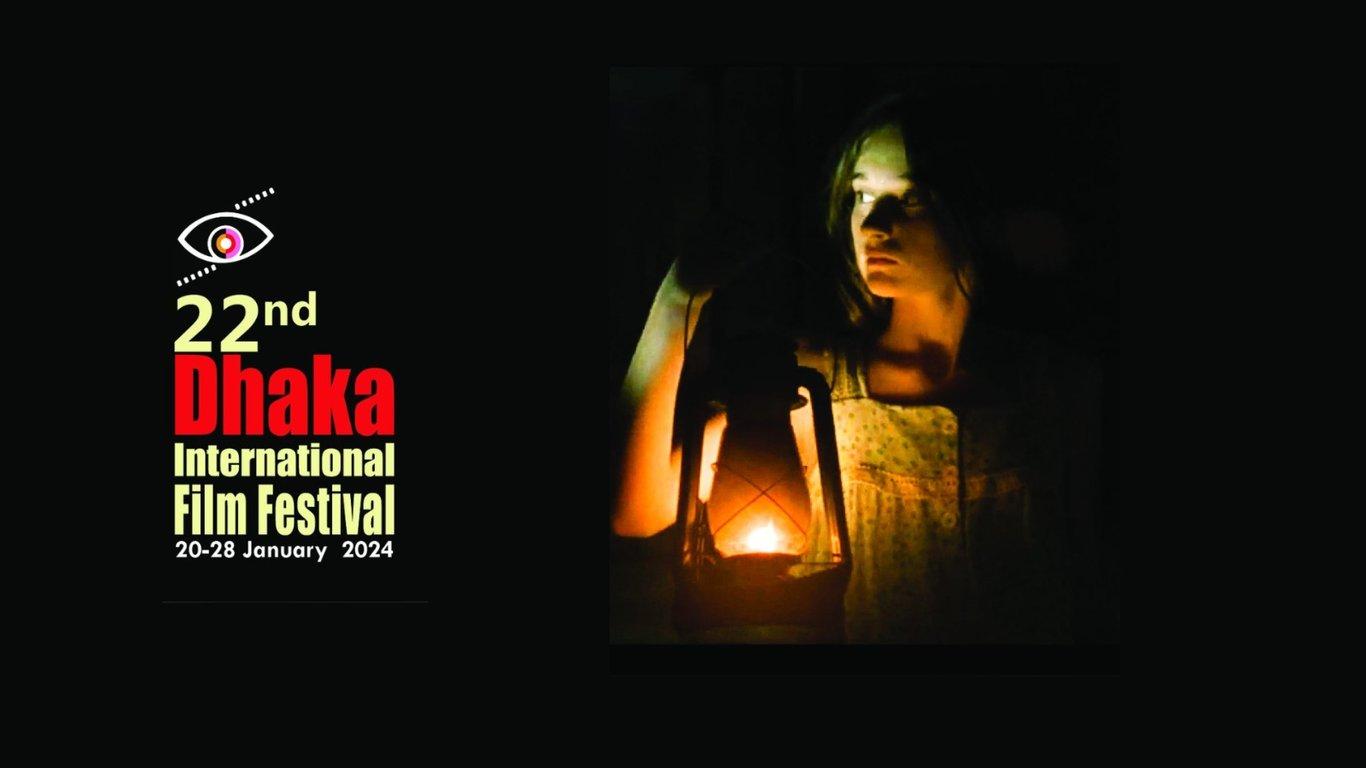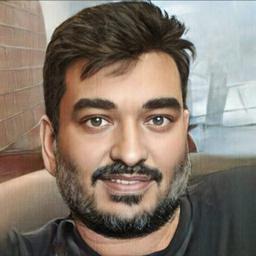22nd DIFF: One of the most successful editions

The Dhaka International Film Festival, or DIFF, was the only international film festival I knew. in my youth. The memories of standing in a queue to watch movies in the open space of the public library are still vivid in the minds of many. The public library is now being demolished for a new building. So the National Museum is now the main venue of the festival. However, there is no gathering of pedestrians as the general public has to enter through the security zone. Movie lovers are different; they watch movies from morning to evening and chat.
This time, the 22nd DIFF has taken the last 32 years of effort to another level. This achievement was made possible by the festival director, Ahmed Muztaba Zamal. And undoubtedly, with him are all the dedicated souls of Rainbow Film Society. My gratitude to them is endless. So why is this year's festival one of the most successful festivals? I want to start the answer with the organizers. The mix of experienced staff and bright youth within the festival team is unparalleled. So their captain could float the ship in the rough sea with this team.
More than hundreds of talented and virtuoso artists related to films like Majid Majidi, Sharmila Tagore, Anjan Dutt, Mamata Shankar, Morteza Atashzamzam, Swastika Mukherjee, from home and abroad, have set foot on the festival grounds. The festival screened 252 films from 74 countries over nine days. There were many excellent and thought-provoking films. People praised them. Curating these films is also a big deal.
The main challenge starts the day before the festival begins because important guests and delegates are due to join that grand event. Arranging the screening of the films, Q&A sessions, and press conferences with those concerned was challenging. Stay-eating-transportation of the guests was also a big challenge for the organizers. But they managed the whole festival beautifully and dragged it to the end. It was a huge undertaking, but everyone accepted the hardships and did it without hesitation. This is the power of the film, the soul of the festival. The biggest challenge in the 22nd edition was to ensure the security of personalities like Sharmila Tagore, Majid Majidi and Anjan Dutt. However, organizers successfully did that, too. The enormous task for me was conducting three master classes in a row.
It was also a great pleasure and stress for me to sit down with the Chinese producer Dr. Shi Chuan, the world-famous director Majid Majidi, and the actor, singer, and director Anjan Dutt to discuss the film. The stress was about whether I could do it correctly or not! But at the end of the event, when I was showered with the good wishes of the participants, the pressure eased a bit.
When Anjan Dutt arrived at the Dhaka Club at noon the day before the master class, the festival director called me. While introducing myself, Anjan Dutt brought up the topic of my writing. I have written about his new film 'Kaleidoscope Now', which he shared on his Facebook page. Now he met me face to face and started telling me more details about the film.
I listened to him at the lunch table and planned how I would bring up these topics in the master class the next day. Anjan Dutt went to the screening after finishing his meal. I got busy with Sharmila Tagore's press meeting. Asaduzzaman Noor, the distinguished actor and politician, directed it. Sharmila Tagore answered all the questions with great patience.
Sitting at the dinner table that night, I saw Majid Majidi strolling to my table and sitting next to me. Another Iranian director, Murteza Atashzamzam (Din-the-Day, Fereshteh), sat with us. Majidi felt comfortable in Persian. So Murteza was translating my English speech. As we eat, we decide what to discuss in the master class the next day.
The next day, the master class started with Dr. Shi Chuan. His talk gave the audience a rough idea of the Chinese film industry. For example, hundreds of foreign films are released yearly in China with subtitles or dubbing. Among these is a huge market for Indian films. He also said that there could be joint production between Bangladesh and China. In that case, the focus should be on the film's story.
After Shi Chuan's master class, there was a break. So I just finished eating at Dhaka Club during that break. The festival director called and said to join with Majidi. After a few words, Majidi said that he would smoke a little. He went out. Through the glass, I saw him holding a cigarette in a pretty pose and looking at the sky of Dhaka. I went and told him to stay as you are and that I would take some portraits.
He allowed and went back to the previous mood. I caught the incredible moment on my camera. Then I took him to the National Museum. After the program started, I saw Sharmila Tagore sitting in the audience row. When Majidi said that Satyajit Ray and Vittorio D'Sica were his inspirations, I told him that Satyajit's artist, Sharmila Tagore, was sitting before us. The two exchanged instant greetings. I enjoyed being there as a medium. The auditorium had no space when Anjan Dutt came on stage after Majidi. Anjan Dutt speaks with the magic of melody. People listened to him with rapt attention. I just gave out some clues at times. Anjan Dutt also kept the fascinating question-and-answer session busy.
There are still desserts left at the end. That is Anjan Dutt's song with guitar accompaniment. Along with the popular songs for about an hour, he also played a new song. It's a song about suicide. Seeing the autumn sun through the window, a man named Somnath avoided suicide. It reminds me of Patch Adams, a movie starring Robin Williams while listening to the strangely sad song. In the film, there was a colourful butterfly as a metaphor for life instead of suicide.
When I spoke with Anjan Dutt again at night, he said he liked it very much. His throat was stiff with cold. Still, he sang ten songs with the force of love. The festival director was sitting at our table. Anjan Dutt told him, Ahmed Bhai, I could sing because you were in the audience.
A goodbye feeling resonated that night. So people were taking pictures as much as they could. I was the FIPRESCI Jury Secretary of the Bangladesh Panorama Division. One of the judges of that team, Jason Tan Liwag from the Philippines, had already left Dhaka. Like Jason, Mamata Shankar and the director and producer of her film 'Vijayer Pore' returned to their country before the closing day.
Many have rejoined even in the middle of the festival. For example, the director, producer, and actress of the film' The Flower' came from South India. They also participated in the master class. Shanti Rao, the actress in this film, told me that I must watch their movie. Many movies have yet to be seen. Their film was in the spiritual section. I watched a total of 32 films of Bangladesh panorama in this festival.
South Korea's FIPRESCI jury, Chang Seok-young, and Bangladesh'd Mofidul Haque stayed till the end. But the most joyful thing was that Sharmila Tagore stayed in Dhaka for ten days, from the beginning to the last day. And she is impressed by Dhaka's hospitality. She expressed immense joy, especially after meeting the Prime Minister. The way Sharmila Tagore has spread light throughout this festival is fantastic. Time has dropped the curtain of the festival on January 28, but it was temporary. Dhaka International Film Festival will return next year with more light, joy, and love of people.
Author: Film Critic, Fipresci jury of 75th Cannes Film Festival



Leave A Comment
You need login first to leave a comment